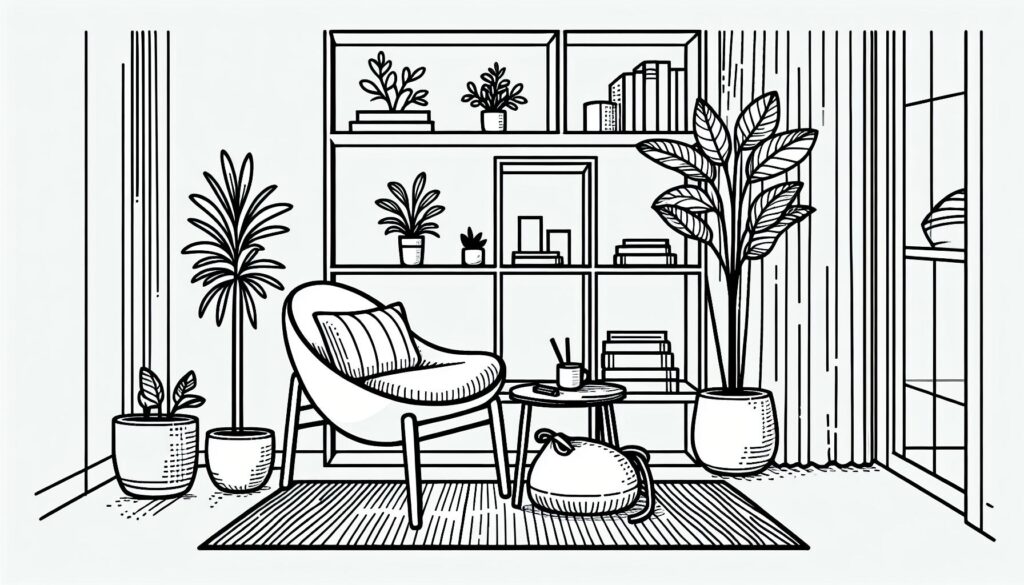Have you ever thought about the connection between minimalism and happiness? As a seasoned blogger, I’ve delved deep into the science behind happiness and how minimalism plays a significant role. In this article, I’ll share insights on how embracing minimalism can lead to a more fulfilling and joyful life.
Minimalism isn’t just about decluttering physical spaces; it’s a mindset that can positively impact your mental and emotional well-being. Through my research and personal experiences, I’ve discovered the profound ways in which simplifying your life can enhance your overall happiness and contentment. Let’s explore how the principles of minimalism can pave the way to a happier and more meaningful existence.
Join me on this enlightening journey as we uncover the fascinating link between minimalism and happiness. Together, we’ll explore practical strategies and scientific findings that highlight the powerful influence of minimalism on our psychological state. Get ready to unlock the secrets to a happier life through the lens of minimalism.
Understanding the Science of Happiness
When delving into the science of happiness, it’s fascinating to uncover how minimalism plays a pivotal role. Research indicates that minimalist living can significantly boost overall well-being. By simplifying our surroundings and lifestyles, we can reduce stress, anxiety, and overwhelm.
Studies have shown that decluttering spaces can lead to a clearer mind and improved focus. A clutter-free environment enhances productivity and promotes a sense of calm and tranquility. Moreover, embracing minimalism can foster a deeper appreciation for the things that truly matter, such as relationships, experiences, and personal growth.
Psychological research emphasizes the importance of reducing excess in our lives to enhance happiness levels. Minimalism encourages intentional living, where every possession and decision aligns with our values and goals. This conscious approach promotes mindful consumption, leading to greater satisfaction and fulfillment.
In essence, the relationship between minimalism and happiness is deeply rooted in scientific evidence. Embracing a minimalist mindset can pave the way for a more meaningful and content existence, ultimately contributing to a profound sense of well-being and joy.
Exploring the Concept of Minimalism
When it comes to minimalism, many associate it with decluttered spaces and a simplified lifestyle. Minimalism goes beyond just aesthetics; it’s a mindset centered around intentional living and prioritizing what truly matters.
In essence, minimalism is about quality over quantity and finding joy in the essentials. By reducing excess possessions and distractions, one can create room for what brings genuine happiness.
Embracing minimalism involves conscious decision-making to align possessions, activities, and relationships with personal values. It’s a journey towards simplicity that encourages mindful consumption and mental clarity.
By simplifying our surroundings and choices, we pave the way for a life that is rich in experiences and meaningful connections. Minimalism sets the stage for greater fulfillment by focusing on quality of life rather than the accumulation of material goods.
The Psychological Impact of Embracing Minimalism
Studies have shown that embracing minimalism can have a significant positive impact on one’s mental well-being. Research indicates that decluttering physical spaces can lead to reduced stress and anxiety levels. By simplifying surroundings and removing distractions, I find that my mind feels clearer and more focused.
Minimalism encourages intentional living, where I prioritize meaningful experiences over material possessions. This shift in mindset can enhance my overall sense of happiness and fulfillment. I notice that as I align my belongings and activities with my values, I feel a greater sense of purpose and contentment in my daily life.
Practicing minimalism can also promote mindfulness and awareness. I have observed that by being more selective in what I choose to keep in my life, I am more present and appreciative of the present moment. This mindfulness allows me to cultivate a deeper appreciation for the simple joys and experiences that bring true happiness.
In summary, the psychological benefits of embracing minimalism go beyond just reducing clutter. It involves a mindset shift towards mindful consumption, intentional choices, and a focus on what truly matters in life. Through practicing minimalism, I have found a greater sense of peace, clarity, and contentment in my daily life.
Practical Strategies to Incorporate Minimalism for Happiness
When it comes to incorporating minimalism into your life for increased happiness, simplicity is key. Here are some practical strategies I’ve found beneficial in my own journey towards embracing minimalism:
- Decluttering: Start by decluttering one area at a time, whether it’s your closet, workspace, or digital files. Removing unnecessary items can create a sense of calm and clarity.
- Mindful Consumption: Before making a purchase, ask yourself if the item truly adds value to your life. Intentional shopping can prevent clutter and ensure that your belongings align with your values.
- Digital Detox: Limit your screen time and digital distractions. Unplugging from technology can help you focus on meaningful interactions and activities that bring genuine joy.
- Gratitude Practice: Cultivate a habit of expressing gratitude for the things you already have. Appreciating the simplicity and beauty in everyday moments can amplify feelings of contentment.
- Quality over Quantity: Prioritize quality over quantity in all aspects of life, whether it’s relationships, possessions, or experiences. Focus on what truly matters to you.
By implementing these practical strategies, you can gradually shift towards a minimalist mindset that prioritizes happiness, fulfillment, and mindfulness in your daily life.
Scientific Findings on the Connection Between Minimalism and Well-being
In recent years, research has shown a compelling link between minimalism and well-being. Studies have indicated that living a minimalist lifestyle can lead to reduced stress levels, increased focus, and enhanced overall happiness.
One scientific study published in the Journal of Positive Psychology revealed that individuals who embraced minimalism reported higher levels of life satisfaction and greater emotional well-being. By eliminating clutter and simplifying environments, participants experienced a reduction in anxiety and improved cognitive function.
Furthermore, neuroscientific research has demonstrated that decluttering physical spaces can have a positive impact on mental clarity and emotional processing. When our surroundings are organized and free of distractions, the brain can function more efficiently, leading to increased productivity and improved mood.
Another key finding is the correlation between minimalist living and quality of relationships. A study conducted by the University of Minnesota found that individuals who prioritize experiences over material possessions tend to have stronger social connections and deeper personal interactions.
These scientific insights underscore the profound effects of embracing minimalism on mental well-being and overall life satisfaction. By integrating minimalist practices into daily life, individuals can pave the way for a more fulfilling and content existence.
Key Takeaways
- Minimalism goes beyond decluttering physical spaces; it’s a mindset that positively impacts mental and emotional well-being.
- Embracing minimalism fosters a deeper appreciation for what truly matters, such as relationships, experiences, and personal growth.
- Studies show that minimalism can lead to reduced stress and anxiety levels, increased focus, and enhanced overall happiness.
- Practicing minimalism encourages mindful consumption, intentional living, and prioritizing quality over quantity.
- By incorporating practical strategies like decluttering, mindful consumption, digital detox, gratitude practice, and prioritizing quality, individuals can shift towards a minimalist mindset for increased happiness and fulfillment.
- Scientific findings support the connection between minimalism and well-being, showing higher life satisfaction, reduced anxiety, improved cognitive function, and stronger social connections for those embracing minimalism.
Conclusion
Embracing minimalism isn’t just about decluttering physical spaces; it’s a powerful tool for enhancing well-being. Research shows that minimalism can reduce stress, boost focus, and increase happiness levels. By simplifying our surroundings and prioritizing experiences over material possessions, we can cultivate stronger social connections and deeper personal interactions. Neuroscientific studies reveal that organized environments can improve mental clarity and emotional processing, leading to heightened productivity and improved mood. Integrating minimalist practices into our daily lives can have a profound impact on our mental well-being and overall life satisfaction.



